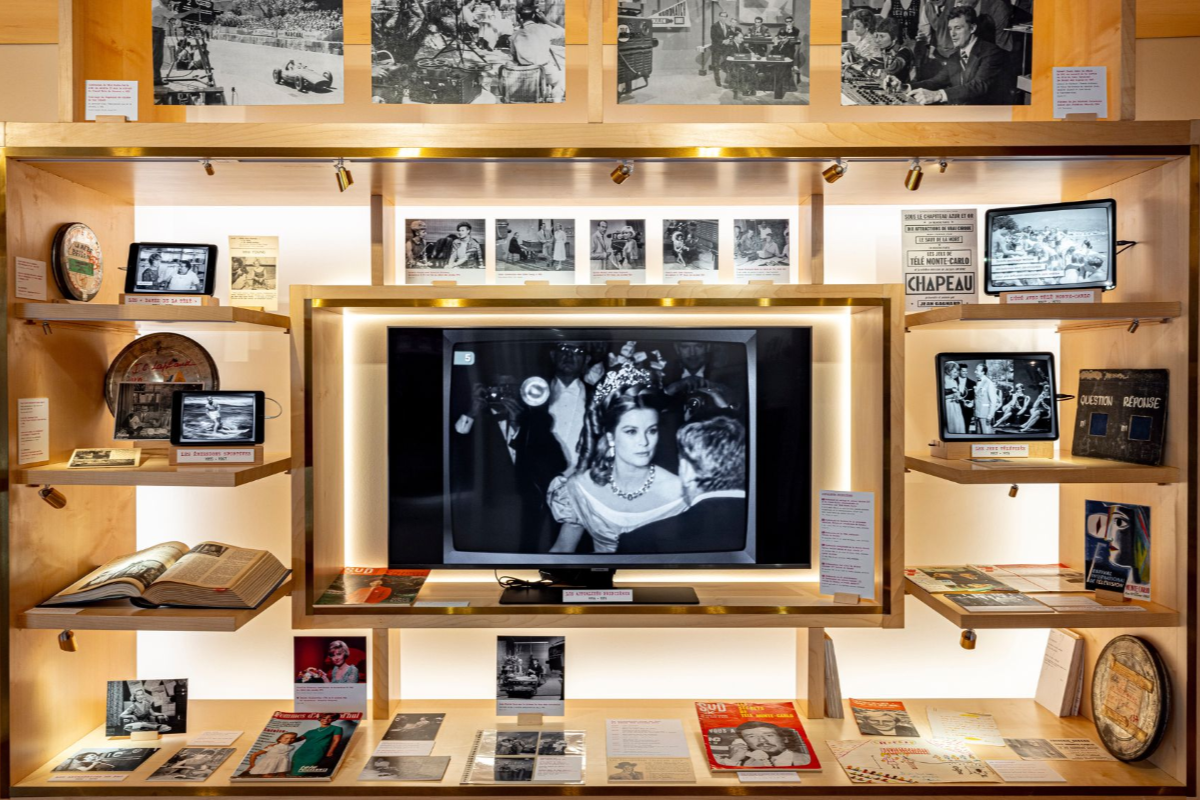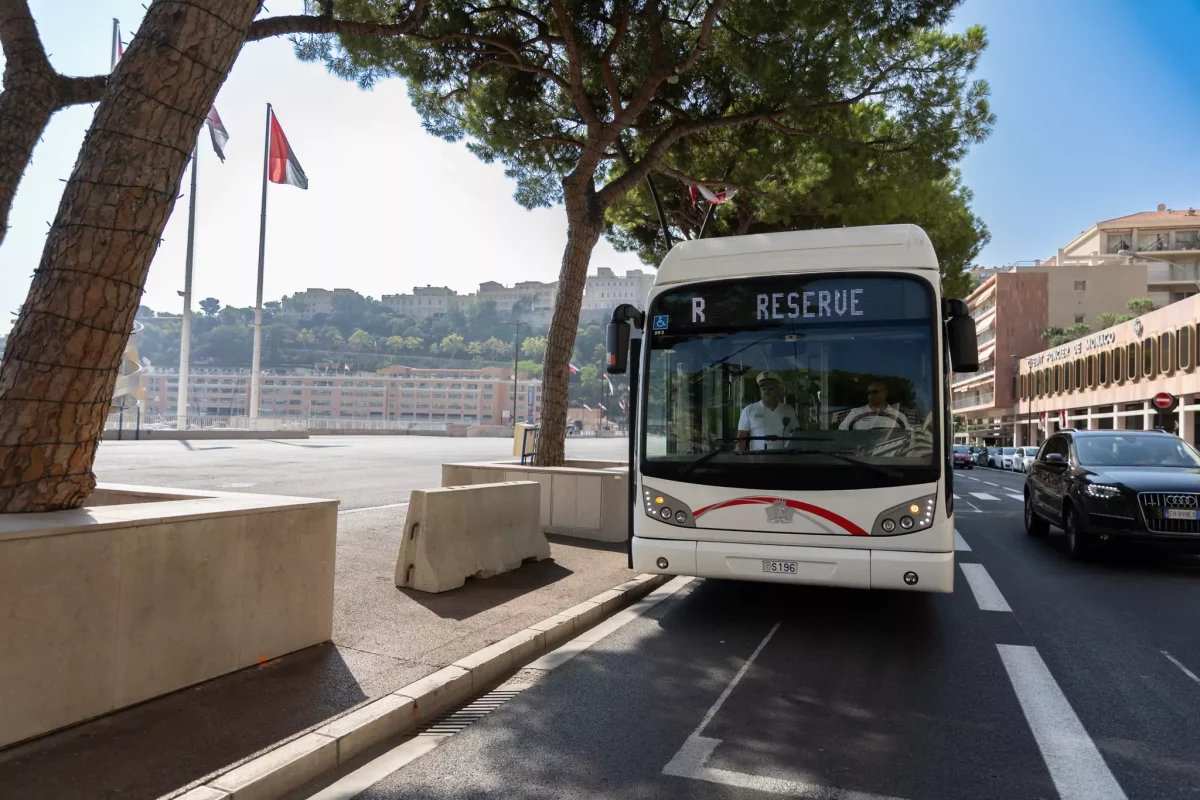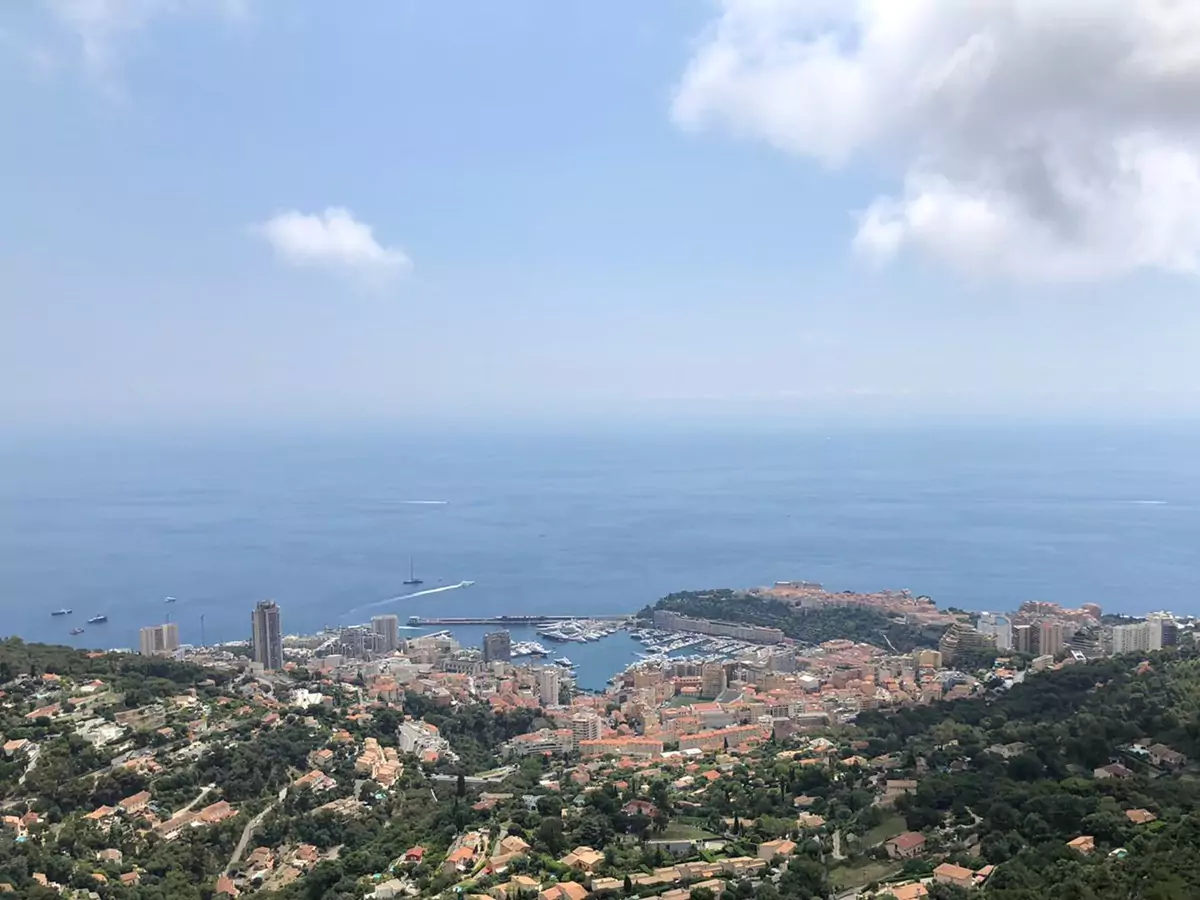Drawing on resources stored in the Palace archives and at the Bibliothèque Nationale de France, the Institut Audiovisuel de Monaco has created a fascinating new exhibition that explores the rich history of broadcasting in the Principality and retells the story of Télé Monte-Carlo for a new audience.
Télé Monte-Carlo (TMC), which was founded by Prince Rainier III in 1954, was a key part of the evolution of broadcasting in – and media coverage of – Monaco for two decades.
Although it was taken off air in 1974, the platform had a profound impact on how Monaco was perceived in the French-speaking world, and the new exhibition from the Institut Audiovisuel de Monaco explores this influence as well as the innovations that TMC introduced.
TMC’s creative evolution
The exhibition draws on records kept by the Palace archives and the Bibliothèque Nationale de France to highlight TMC’s technological and creative milestones.
It reveals how TMC carved its niche despite competition, thanks in large part to the vision of Jacques Antoine, a television producer who led TMC’s programming during its height. Known for his strategic focus on engaging and varied content, Antoine’s approach balanced entertainment with relaxation and helped to grow the channel’s popularity and influence.
Visitors to the exhibition will also discover TMC’s innovative strategies, such as outdoor broadcasting, community engagement, the integration of cinema into television and the production of diverse content, from talk shows to game shows.
The exhibition, which formally opens to the public on 25th March, will run until 31st January 2025. To visit, head to 83/85 Boulevard du Jardin Exotique between 10am and 5pm during the week. An English-language guide to the exhibition will be available at the front desk.
See more in our Instagram reel below…
View this post on Instagram
Join the Monaco Life community – sign up for the Monaco Life newsletter, and follow us on Threads, Facebook, Instagram, LinkedIn and Tik Tok.
Photo credit: institut-audiovisuel.mc



